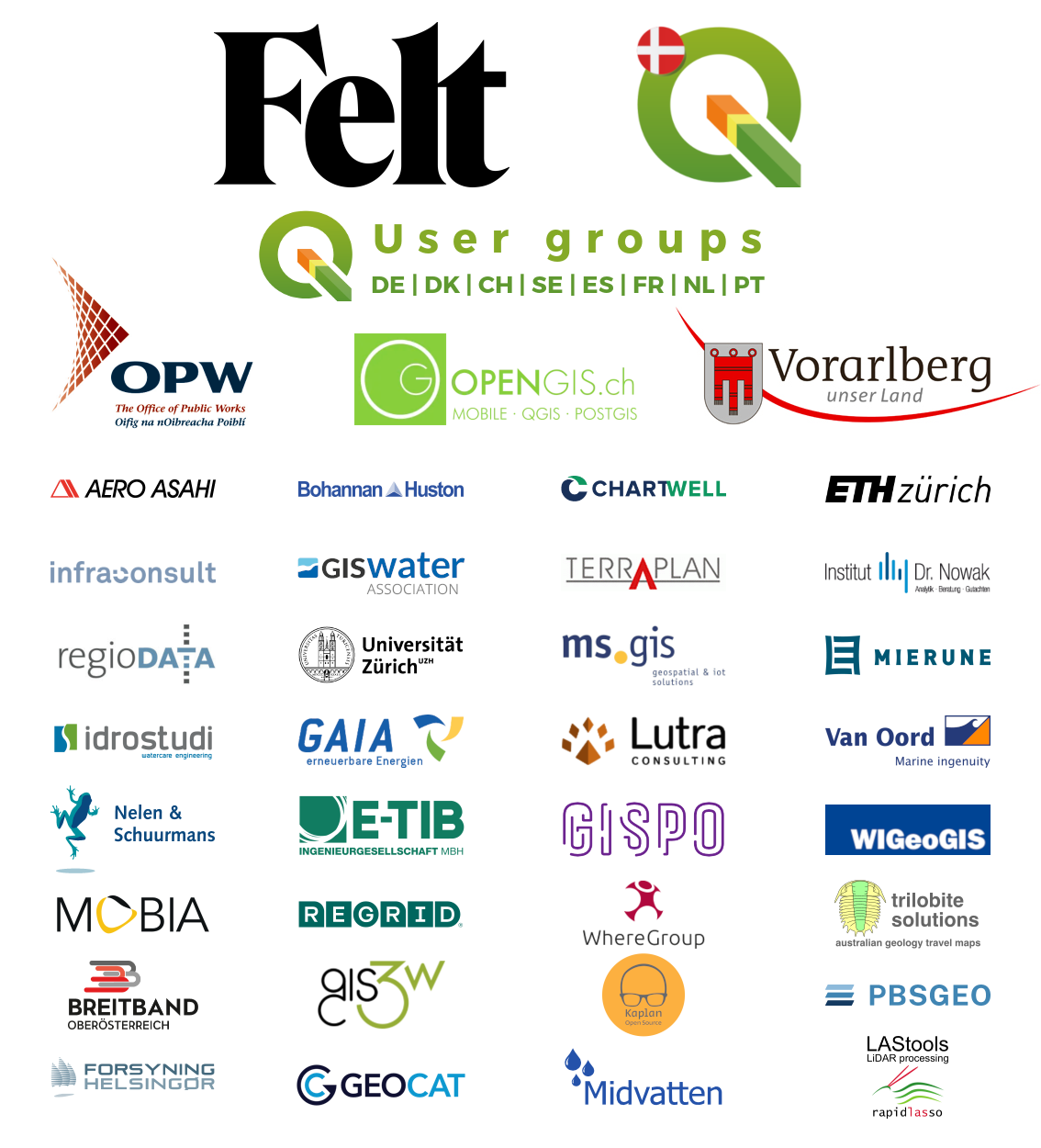How Oslandia invests in OpenSource
You may be wondering where Oslandia’s name is coming from ? Or maybe you already know ? In this article we focus on the “OS” part of Oslandia : OpenSource !
Oslandia positions itself as IT expert in the field of OpenSource geographical information systems. QGIS is namely one of the proheminent opensource softwares for the geospatial industry. This position is a key element of our business model.
But do you know how we work behind the scene ? This article will give you an opportunity to discover some of our contributions to the OpenSource ecosystem.
Principles
Our general business model is based on projects we carry out for our clients. They fund us to design and implement solutions adapted to their needs and requirements. Part of these developments consist in core development of Opensource software. This allows us to contribute actively to FOSS4G components.
But this funding method makes it complicated to fund maintenance, or new exploratory developments, as well as communication, community management or other tasks necessary for healthy opensource projects.
As a consequence, we introduced at Oslandia a mechanism of internal OpenSource project grants.
These grants constitute self-investment from the company into the OpenSource ecosystem, and can be applied to new projects, research and development or existing projects.
This mechanism has multiple interests :
- For opensource projects : maintenance and new contributions
- For Oslandia : image and potential new business opportunities
- For the team : work on projects that matter to them
These OpenSource grants consist in a large range of possible tasks, as we often say : “Opensource projects are not only code”. Instead of developers, we prefer the term contributors. Development, code review, maintenance, documentation, community management, communication, each collaborator can choose the type of task to focus on.
We differentiate software maintenance grants and opensource project grants. We call the latter “OpenSource mini-projects”
Software maintenance consists in refactoring, bugfixing, packaging, release management… All these tasks need dedicated time which is difficult to fund directly on client’s project.
Opensource mini-projects grants are specific opensource proposal which can be submitted by any collaborator on any subject. We then vote on the best proposal and the team can start working on the subject within the allocated budget.
Some numbers
We allocate around 5% of the global production time to software maintenance grants. Our Opensource maintenance grant for 2022 is therefore approximately 190 days of work. It mainly focus on QGIS, PostGIS, QWC2, Giro3D and a few other components we actively maintain.
We also allocate 5% of the global production time to opensource mini-projects grants. It represents an additional 190 days of work for 2022.
Oslandia therefore invests almost 400 days of work into the OpenSource ecosystem, outside of direct contributions for client’s projects.
Opensource Mini-projects
OpenSource mini-projects grants are submitted by Oslandia’s collaborators and focus on various task and thematics : innovation, development, design, prototyping, communication or any other kind of Opensource contribution.
Proposals have to define goals, deliverables, planning, team and needed budget. Then we evaluate the proposals given the following criteria :
- proposal coherency ( e.g. deliverables vs budget )
- alignment with Oslandia’s strategy
- innovation level
- business opportunities
- fun and motivation
- impacts in terms of communication
- links with other projects at Oslandia
- possibility of extra R&D funding
We then vote on best proposal and manage these mini-projects just as a client project.
Examples
QGIS
The maintenance grant on QGIS allowed us to work on the following tasks :
- Bugfixing
- Code review for PRs submitted by other developers
- Code refactoring
- Documentation
- Packaging pipeline
- OSGeo4W improvement
OpenSource mini-projects grants
During the year of 2022, we worked on the following mini-projects :
- New features for QWC2
- Improve QGIS DICT plugin
- Improve QDeeplandia QGIS plugin
- Improve QGIS software quality tooling
- Improve totalopenstation topography software (TOPS)
- Improve LCSI QGIS plugin
- Improve QGIS Plugin templater
- Set up CI for QGIS plugins
- Rework the OSGeo-fr local chapter website ( see the proposal here )
In 2023 we will continue to work on these projects, and others ! for example pg_featureserv, py3dtiles, infoclimat website, MapProxy, pgRouting…
Conclusion
This investment mechanism allows Oslandia to be an opensource “pure player” and contribute actively to these OpenSource projects and to the OpenSource ecosystem as a whole.
Should you be interested in our contribution model, or if you have any question regarding our internal OpenSource grant program, do not hesitate to contact us : [email protected] !







